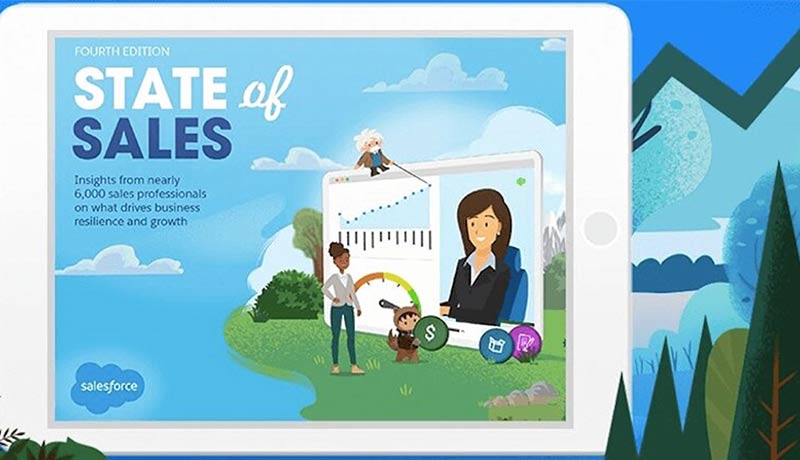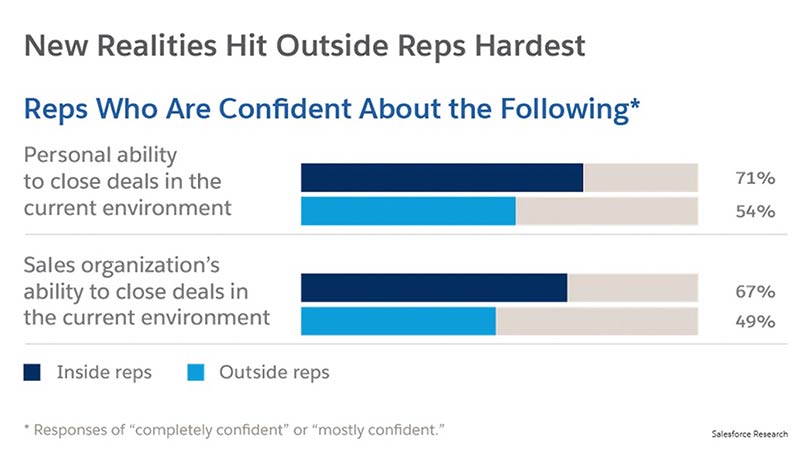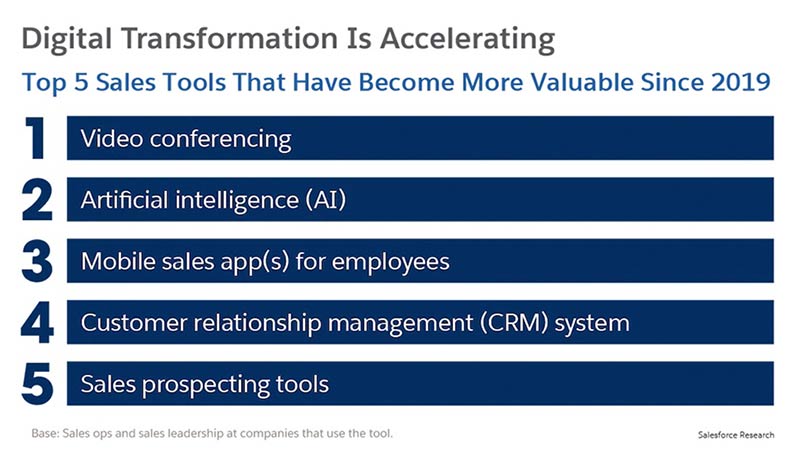
Salesforce published the fourth edition of its State of Sales research report, a data-driven look at how sales teams are adapting to the drastic impacts of COVID-19 and the strategies and tactics they’re implementing to recover and grow.
Salesforce surveyed nearly 6,000 sales professionals globally from B2B and B2B2C companies across North America, Asia Pacific, Europe, the Middle East, and Africa. The report showcases how a global pandemic underscores the urgency for technological and organizational transformation.
Some key insights from the State of Sales report include:

Customer and Market Trends Are Redefining the Sales Profession
COVID-19 has shaken up customers’ circumstances with unprecedented scale and speed. As a result, 72% of sales reps say success metrics have changed, and 58% of sales reps expect their roles to change permanently.
New Realities Hit Outside Reps the Hardest
Selling during a public health and economic crisis isn’t easy for anyone, but it’s hitting field sales reps the hardest. Outside sales teams, typically reliant on in-person meetings, are now learning how to sell from home via call or video. Outside sales reps are less confident than their inside sales counterparts in their personal ability and their organization’s ability to close deals. Outside sales reps are also less likely to feel like their manager understands their day-to-day challenges, compared to inside sales reps.
Organizations Are Seeking a Balance Process and Autonomy
Because sales teams are working remotely, there’s a greater need to share progress and updates through formal reporting mechanisms. 67% of salespeople say activity logging is enforced more than in 2019, and 63% of reps are logging more details than they did in 2019.

Digital Transformation Is Accelerating
Seventy-seven percent of sales leaders say their digital transformation has accelerated since 2019.
Video conferencing leads the roster of increasingly valuable sales tools — something that will come as no surprise in the midst of a pandemic.
AI mobile sales apps, and CRM systems have also earned more prominent roles in sales toolkits – as sales operations seek to provide teams with both on-the-go and data-driven tools to do their jobs.
Overall, 81% of respondents say sales technology needs have changed significantly since last year, and that they’re implementing changes faster than in 2019.